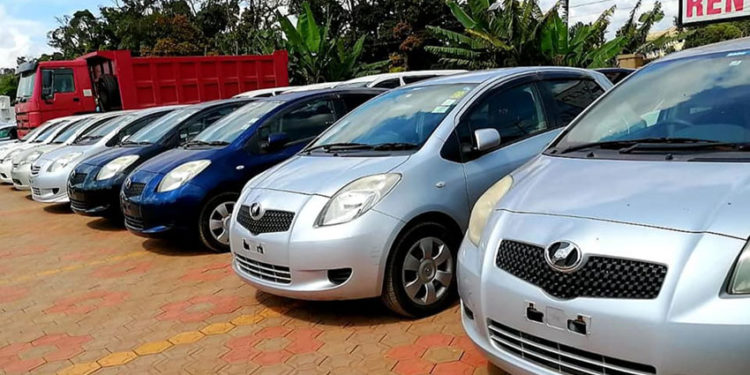By Denis Jjuuko
Cars are the second-highest value import in Uganda after petroleum products. It goes without saying that the majority of the petroleum products imported are used in cars, making the automotive industry one of the biggest in the country.
In many countries, the automotive industry is a key actor in the economy where many independent small and large enterprises supply parts that put together to make a car. Cars also naturally use a lot of consumables once they are off the assembly lines — fuel and oil to grease the parts of internal combustion engines and many other parts. We saw during the 2008 economic meltdown that the United States moved swiftly to bail out their auto industries as they create millions of jobs directly and indirectly.
With poor infrastructure and lack of reliable public mass transport, the automotive industry has enormous potential.
Once many people in Uganda get a somewhat meaningful job, one of the first assets they spend their money on is a car — many times a fifth hand they spend more time under repairing than inside enjoying.
A few years ago, I witnessed a transaction that amused me where somebody bought a very old car. The transaction took place in a famous restaurant in Kampala in the evening. The buyer came with about five friends and once he received the car logbook and keys, the party started. His friends high-fived and hugged him and all admired the car after which several drinks were opened and enjoyed. The buyer sat in the middle cross-legged, like a prince. You could tell his friends admired him immensely wondering when they will be able to achieve as much as him. One of their own had become “middle class,” he was now a “my car.”
Young men tell me that these days girls of their dreams first inquire whether they have cars before they decide whether to date them or not. Once they own a car, the question of which car is also asked. I don’t know why one would be so interested in a car that doesn’t belong to them but I think I have heard that it is easier to cry in a car than on some ramshackle bicycle!
A car isn’t just a means of transport; it is a status symbol. You may argue that we are exchanging values for possessions but that is the reality today. You have heard about washing bay workers in Wandegeya crashing their clients’ cars around hostels where female university students reside or those who thought they had landed on a young millionaire just because he had access to car keys.
I remember during my university days, a young man who bought a car key and dropped it on the table the moment he sat down to create an impression that he had a car whereas he didn’t even know what a gear lever was. We always laughed at his theatrics.
As long as people migrate from rural to urban areas to escape poverty and the cities or towns remain with poor public mass transport, a car will be one of the most important assets people will ever buy. We won’t be like in some countries in Scandinavia where a prime minister rides a bicycle to office. Ugandans also love buying and building their own houses which are now located 20km or more from their workplaces. Those who are joining universities today will live further away from the city. They will need cars to ease their mobility unless significant investments are made in public mass transport.
The majority of the imported vehicles are very old and susceptible to frequent breakdowns, which creates massive opportunities. Uganda is also developing its automotive industry with the construction of a plant in Jinja nearing completion.
With poor or non-existent mass public transport as mentioned above, Uganda’s automotive industry potential is enormous and due for disruption. Technology advancements in 3D printing and availability of machinery on the world market mean that an entrepreneur can start looking for opportunities to make some of the parts right here in the country. We have the raw materials and a market that is so huge and ready for disruption. What one needs is to think of ways to disrupt the industry as it is ready for the taking.
The writer is a communication and visibility consultant.djjuuko@gmail.com










